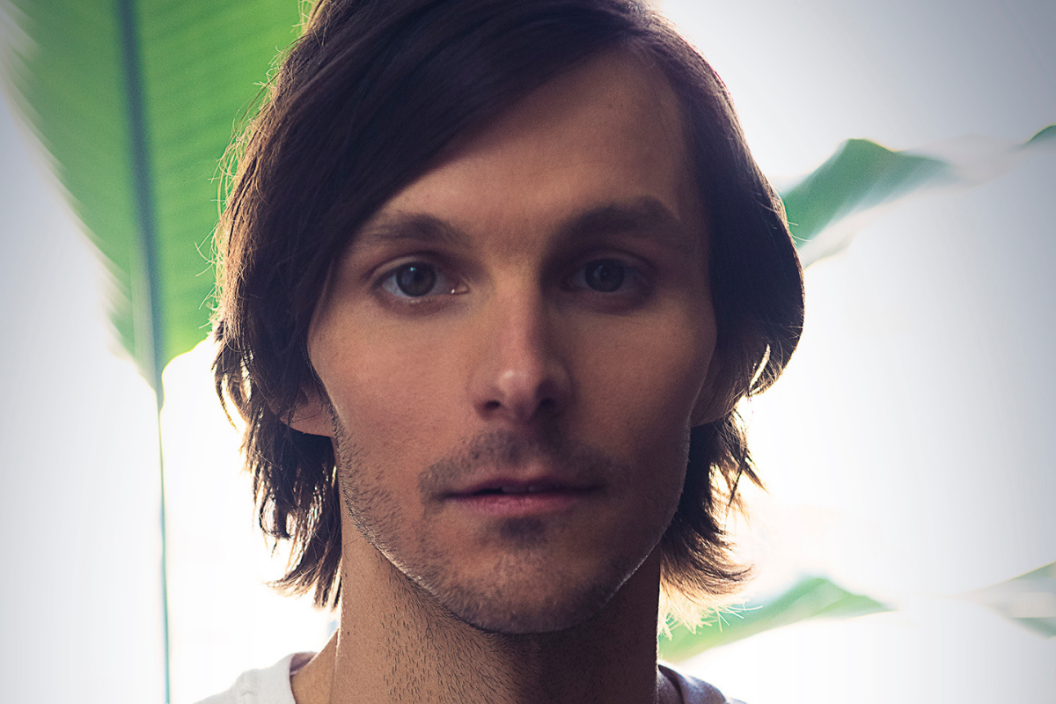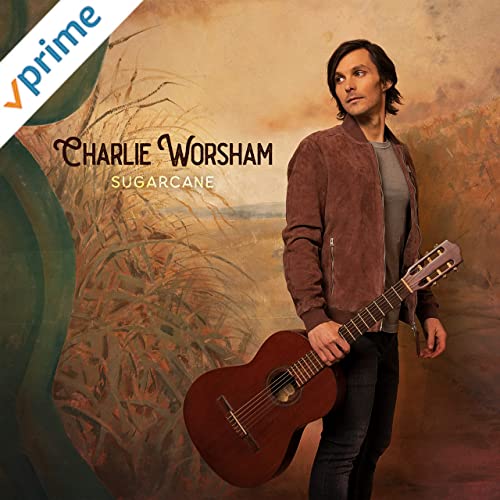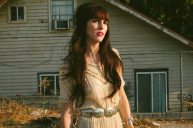Ask just about anyone in Nashville for a short list of country artists who deserve more recognition and the name Charlie Worsham is bound to make the cut. Worsham, who made his debut on the Grand Ole Opry at just 12 years old, has earned praise from heroes such as Vince Gill and Marty Stuart for his 2013 debut album Rubberband and the critically-acclaimed (and criminally unheard on country radio) 2017 album Beginning of Things. And while Worsham may not be a household name or have a country radio hit (yet), he remains one of the busiest artists in Nashville, joining Old Crow Medicine Show as a temporary member in 2019 and collaborating with Gill, Eric Church, Carrie Underwood and more.
Now, Worsham is back with his first solo release in four years, Sugarcane, a six song EP that finds the Mississippi native reflecting on the quiet frustration of chasing a dream (the fiery "Fist Through This Town") and finding peace exactly where he is right now ("For the Love").
Wide Open Country caught up with Worsham to talk about Sugarcane (out July 16), the power of staying hungry as an artist, getting advice from your heroes and why he's already living the dream. (This interview has been edited for length and clarity.)
Wide Open Country: 'Fist Through This Town' is a song anyone with a dream can relate to. What was going through your mind when you wrote the song?
Charlie Worsham: 2014, at the time, was the busiest year I'd ever had, and that's saying something, just in terms of tour dates and everything. I had a record come out and the record didn't do what I had hoped commercially. It was my album Rubberband and I was out touring on it. And I didn't have enough time to process the heartbreak of that because I was stuck out on the road. On the road, I was kind of sandwiched between all these other artists who I felt like were leapfrogging ahead of me and getting hits. I was frustrated and it took me a couple years and some slowing down to really process what I was feeling and how I had been attached to my dreams.
I was living in this little house over on Lillian Street...there were a lot of nights there where I just was up — I tend to be a night owl — doing a lot of songwriting and guitar picking. One night it was just this perfect combination of whiskey and guitar strings and blank pages and a painting of George Jones on the wall and kind of excavating my heart. The song kind of started to fall on the page. I was really excited to get to record it at this time in my life, because while isn't where I am, it's definitely where I've been...
For me, it's a dream of this life and music, which in a roundabout kind of ironic way I'm already living. Even though I've not had my big hit song happen yet, I'm kind of living the dream. And in the journey to get there, I think it was the hard times that helped me appreciate the beauty in it.... Just leaving home, leaving the town you grew up in is going to mean that you're going to have some struggles. Just looking for true love means you're probably going to have some struggles. So that's kind of how I feel like that song is going to serve its purpose in this world. Hopefully, it's the kind of rocket fuel for folks that all the songs I cling to during the hard times are for me.
WOC: Is that how you stay motivated — channeling those emotions into song?
CW: I would say how I've remained sane is meditation and therapy and my wife is a great balancing force in my life. The motivation for the music industry — that side of it — for me, I think I just hit a point where I kind of realized... I get called to play on other people's records — I'm playing the guitar solo for "Heart on Fire" for Eric Church, playing a bunch on the upcoming Dierks Bentley and Luke Combs records and, while I may not be a household name, I've hit a point where I've recognized that I'm really good at what I do. I'm respected in my community and I'm content with my hunger for other forms of success. I'm still hungry for it. But that's actually kind of a great thing, because when I listen to my favorite records, nine times out of 10, it was the record that band made before they hit it big. If you go listen to early B.B. King he's playing to save his life. [Laughs] So I'm actually really grateful for that hunger because I think that's the driving force. But I'm also content at the same time."
WOC: You've become friends with and collaborated with your heroes like Vince Gill and Marty Stuart. What does it mean to you to have that support from people that you grew up idolizing?
CW: The craziest thing about that is how it feels exactly how it's supposed to be. What I mean by that is that when Vince and Marty were coming up, they were around their heroes and their heroes took them under their wing, gave them counsel and encouragement, sometimes gigs. [Laughs] Marty talks a lot about how the only two jobs he ever held were for Johnny Cash and Lester Flatt. And I think that's one of the great country traditions. So it just feels really good to be a part of something that I think has been a part of country music since it began. I'm grateful for it... It just feels kind of perfectly natural and normal in terms of a life in country music. I think I'm grateful and glad because I'm partial to my heroes, but that doesn't mean that somebody that's young and getting into country today who has hip hop influences and collaborates with some of those influences isn't just as valid and just as country in that relationship. Because honestly, that's really just a very important part of the ecosystem we have here in Nashville — passing that wisdom on and letting it evolve and grow.
WOC: What's best piece of advice — or just a great piece of advice — you're received from one of your heroes?
CW: I'm lucky to be in a lot of rooms where a lot of smart things get said, but I was going into work with Jay Joyce to make [the EP, Sugarcane] and this would've been fall of 2020. I've worked with Jay on records for Eric Church and had been a fan of Jay's as well for a long time. I was really excited to work with him, but I was going over to Vince [Gill's] to catch up and actually borrow some gear for the sessions. Being on the road with Vince in 2019, I had heard so many stories over the years about the different producers he'd worked with — different experiences, both good and bad. I've always been very mindful of...sounding as country as I am. And as big of a fan as I am of Jay's records, there was also a part of me that was a little bit, I guess I'd say hyper aware that there wasn't as [many] country elements in the room as I was going into that particular session. I was talking about that with Vince and he said, 'Well, man, just go have fun....When you hear it back, you're either going to love it or hate it. And if you don't like it, you don't have to put it out.' [Laughs] And it kind of disarmed the whole thing for me. It's not that that's the most, straight off the mountain top, written in stone tablets advice that I ever got, but it was just a great reminder.
I remember the first time I was on the road with Miranda Lambert and she was getting ready to put out the album that had 'The House That Built Me' on it and she had just expressed a little bit of [uncertainty]. It just makes me remember that no matter how successful an artist is, no matter what record it is for them — if it's the first or the 15th — it's always going to be the most important record you ever made because we care about it. But we do our best when we're having fun and when we trust the people around us. And if it doesn't come out great, we don't have to put it out. But fortunately it did come out great and I love it and I'm excited for the world to hear it."
Sugarcane is available for purchase here.
Products featured on Wide Open Country are independently selected by our editors. However, when you buy something through our links, we may earn a commission.
Now Watch: The Best Country Love Songs of All Time





